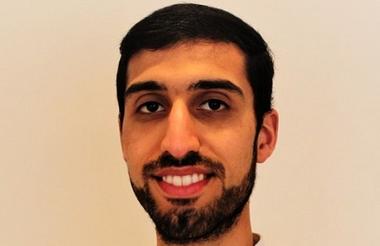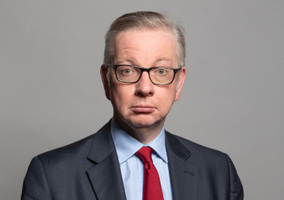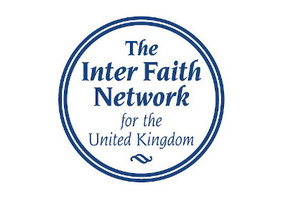Of all the problems one would expect to be troubling the mind of the levelling-up secretary Michael Gove I would never have thought my role as a charity trustee would be one of them, as disclosed in newspaper leaks in recent weeks.
For context, in July last year I was honoured to become one of 20 trustees at the Inter Faith Network (IFN). As the UK’s interfaith linking body, it has, since 1987, worked to promote understanding about different faiths in the UK and positive interfaith relations.
It connects national bodies representing Buddhists, Christians, Hindus, Jews, Muslims, Sikhs and others, as well as local and regional interfaith groups, educational and academic bodies.
These interconnections make IFN a hub of community good practice and a unique resource for the UK for the last 37 years.
Yet as of yesterday, IFN is set to shut down. Why is that?
Funding withdrawal
Since 2001, government funding has been a vital part of enabling IFN to extend its work, such as the annual Inter Faith Week every November. As the UK has increased in diversity, these programmes have increased in value and need.
On 31 March 2023, the Department for Levelling-Up, Housing and Communities wrote to IFN saying that no funding would be given from the beginning of April that year.
This shock announcement led to a widespread campaign, including cross-party support, to maintain vital funding. Subsequently, the Department wrote to IFN in July 2023 to offer funding from that month until March 2024. However, month after month went by with no grant funding agreement or funding materialising.
Then, in another late intervention, on 19 January 2024, Gove wrote to IFN’s co-chairs stating that he was now “minded” to withdraw the funding offered to IFN the previous July. The reason given was me: a trustee of IFN as listed on the Charity Commission website six months earlier, nominated and appointed in accordance with the charity’s bylaws, and currently its only Muslim trustee.
According to Gove’s letter and the near simultaneous leaks to the Sunday Telegraph, I stand accused of being a member of the Muslim Council of Britain (MCB). Like my trusteeship of IFN, this is a matter of public record as, in 2018, I was humbled to be elected as the youngest ever office bearer in MCB at the age of 28.
I subsequently served for four years in that leadership role and continue to support its national council, with a pilot mosque-church twinning project and other similar capacity building initiatives being among the areas I had the pleasure of working on.
Indeed, it was through the MCB that I became involved in working for good interfaith relations in the first place. As a result, I’ve benefited immeasurably from opportunities at IFN-convened national forums such as hearing Jewish colleagues share their experiences of supporting religious education curriculums, to how Hindu colleagues have worked with mandirs to promote targeted health promotion campaigns. I have also played an active role in Inter Faith Week and taken a particular interest in encouraging youth inter faith engagement.
Sector’s independence from government
In contrast to many authoritarian nations, Britain should take pride in having a vibrant civil society sector where organisations like IFN, often dependent on dedicated volunteers, pursue community-led activities for the common good.
It is a perilous slippery slope when Gove appears to hold the Inter Faith Network to ransom over my role as a trustee there, because of his dislike and ideological bias against another organisation to which I belong.
The MCB is a democratic and independent body representing a large cross section of British Muslims. The current government’s attitude towards the MCB is no secret. But more and more people across Britain are now opening their eyes to how ludicrous the state’s non-engagement policy is, the weak justification based on events addressed almost 15 years ago and the observations that no other faith group is subject to such treatment.
What is particularly reckless about this latest episode, is Gove’s willingness to undermine decades of interfaith capacity building in local communities across the UK, by attempting to dictate and coerce the composition of a charity’s board of trustees to suit ministerial biases.
Charities have an independent regulator: the Charity Commission, which should be allowed to do its job and to uphold the independence of charities free from undue interference of transient governmental agendas and biases.
Unifying approach desperately needed
With approximately 6.5% of the UK population being Muslim, for many young Muslims like me, volunteering as charity trustees, governors or other grassroots initiatives is how we express both our Islamic faith and our British values and identity.
Yet today it seems our civil society participation is a fast-track way of attracting hostile attention from ministers and government departments too.
I am honoured that my fellow trustees have stood shoulder-to-shoulder with me and am grateful for the many friends of all faiths and none who have shared messages of support.
With the immense societal challenges facing Britain today, now is not the time to weaken our nation’s interfaith infrastructure or wreck governance in our civil society institutions.
Yet by allowing institutions like IFN to disappear and setting a very dangerous precedent of government interfering with who charities appoint as trustees, this is exactly what it appears Gove is doing.
Now more than ever – rather than divisive attitudes and careless meddling – civil society desperately deserves a unifying, ethical and authentic approach to engagement from government.
Hassan Joudi is a trustee at the Inter Faith Network for the UK and formerly served as an office bearer at the Muslim Council of Britain between 2018 and 2022. He carried out both of these roles voluntarily and he writes in a personal capacity.











